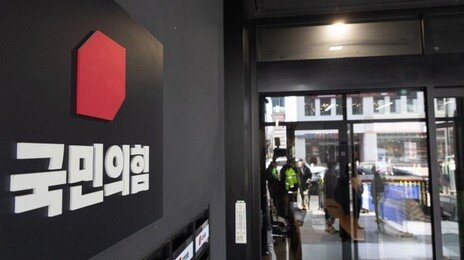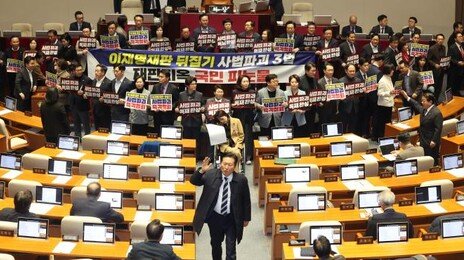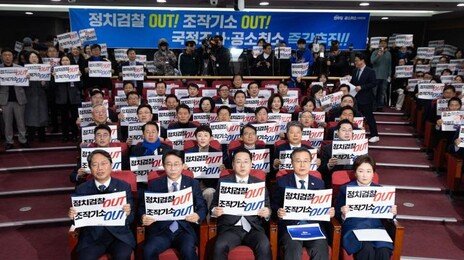공유하기
[아시아 포커스]‘中, 위안화 절상 안하는 게 아니다’ 원문
- 동아일보
글자크기 설정
By ROGER COHEN
I've been thinking about Eddie Leung. He had lunch with me the other day at his factory in Dongguan, China, and appeared wearing a black yarmulke. "All my friends are Jewish," he said.
Tommy Hilfiger, Jennifer Lopez, Coach, Titan, Trump ? name the brand and Leung is manufacturing their watches in China's southern Guangdong Province, the place that is now the world's factory.
Leung was wearing a great hulk of a watch called a Bonja. It's big in Gulf states, where it retails for about $4,000. Leung told me he's paid $200 for this model and that leaves him a comfortable margin. For Juicy Couture watches that retail in New York for $95, he gets eight dollars. He's still making money on that. In general he receives about 8 percent of the retail price, or about 40 bucks for a $495 Lacoste watch.
That's called working the nuts and bolts of the high end. His company, Dailywin Watch Products, has been doing that since 1978.
It's thriving in that role. You can be all-American like Hilfiger, or very French like Lacoste. Then you get China to develop that image at low cost. Authenticity is fungible in a world where Chinese men wear yarmulkes. (An affectation that Leung said draws a laugh from his New York clients.)
The quality here is not Swiss, but it's high ? "we are at 85 to 90 percent of the quality of Swiss made," said Matthew She, the general manager. As a longtime U.S. resident of southern China put it: "Does America have a choice of a cheaper place for a quality product?"
Short answer: nope. China has the United States about where it wants it. You can make your own calculation of President Obama's leverage over Beijing ? and it's heading south.
I found conditions in the factory good ? clean, a groomed garden, a large canteen. I also found Leung, for all his bonhomie, in a pensive mood. It's been a rough 18 months in Dongguan since the Great Recession began. About two million jobs have been lost in the region, including a few hundred at Dailywin. Countless factories have closed.
Leung said his sales last year were down more than 20 percent over 2008, with the sharpest drop (over 40 percent) in January 2009. After a decade of smooth expansion, this was a shock. He's had to slash costs. Labor and raw materials are becoming more expensive. Above all, Western consumers have taken a deep breath: "Now, you don't just buy, you are looking for quality or real necessity, or you won't spend."
So, I asked Leung, given all these difficulties, what do you think of Obama's demands that China revalue its currency, the renminbi, or yuan, which America thinks is undervalued, placing the United States, in the president's words, "at a huge competitive disadvantage?"
Leung laughed. He's a friend of Obama's half-brother, who lives nearby, and he wishes the president well. But business is business. "Look," he said. "Too much of that and we lose. Even a 3 percent appreciation is not good for me. Nations act in their self-interest. If President Hu Jintao told Obama to adjust the dollar because it would be good for the world, would he do that?"
The low renminbi rate is about growth, jobs and exports. That's the fundamental underpinning of the Chinese Communist Party's hold on power. China came through the downturn but, as Dailywin's difficulties suggest, it did not come through unscathed. Jobs were lost, painful adjustments made. I don't see China risking its renewed growth to cool U.S. Congressional ire over high American unemployment.
Leung's got to sell his watches. All the ships carrying America's toilet paper and aluminum foil and disposable razor blades through the Pearl River Delta ? Guangdong Province alone accounts for over a third of U.S.-China trade ? have to keep sailing or there will be unacceptable political risk. Exports still drive 9 percent annual growth, whatever the development of the domestic market.
A dollar at 6.83 yuan keeps Chinese-made global brands with their colossal mark-ups in the global mall. That's an imperative even mighty America battles in vain. Which is why Eddie Leung's time is not about to run out.
트렌드뉴스
-
1
[단독]폴란드, 韓 해군 최초 잠수함 ‘장보고함’ 무상 양도 안받기로
-
2
‘노인 냄새’ 씻으면 없어질까?…“목욕보다 식단이 더 중요”[노화설계]
-
3
李 “나와 애들 추억묻은 애착인형 같은 집…돈 때문에 판 것 아냐”
-
4
4급 ‘마스가 과장’, 단숨에 2급 국장 파격 직행…“李대통령 OK”
-
5
국민 64%가 “내란” 이라는데… 당심만 보며 민심 등지는 국힘
-
6
李대통령 “큰 거 온다…2월 28일 커밍순”, 뭐길래?
-
7
[사설]2년 만에 꺾인 강남·용산 집값… 아직 갈 길 멀다
-
8
국힘서 멀어진 PK…민주 42% 국힘 25%, 지지율 격차 6년만에 최대
-
9
대구 찾은 한동훈 “죽이 되든 밥이 되든 나설것” 재보선 출마 시사
-
10
밥과 빵, 냉동했다가 데워먹으면 살 빠진다?[건강팩트체크]
-
1
‘똘똘한 한채’ 겨냥한 李…“투기용 1주택자, 매각이 낫게 만들것”
-
2
李 “나와 애들 추억묻은 애착인형 같은 집…돈 때문에 판 것 아냐”
-
3
국힘서 멀어진 PK…민주 42% 국힘 25%, 지지율 격차 6년만에 최대
-
4
尹 계엄 직후보다 낮은 국힘 지지율… 중도층서 9%로 역대 최저
-
5
박영재 대법관, 법원행정처장직 사의…사법개혁 반발 고조
-
6
“정원오, 쓰레기 처리업체 후원 받고 357억 수의계약”
-
7
대구 찾은 한동훈 “죽이 되든 밥이 되든 나설것” 재보선 출마 시사
-
8
국민 64%가 “내란” 이라는데… 당심만 보며 민심 등지는 국힘
-
9
오늘 6시 이준석·전한길 토론…全측 “5시간 전에 경찰 출석해야”
-
10
‘4심제’ 재판소원법 與주도 국회 통과…헌재가 대법판결 번복 가능
트렌드뉴스
-
1
[단독]폴란드, 韓 해군 최초 잠수함 ‘장보고함’ 무상 양도 안받기로
-
2
‘노인 냄새’ 씻으면 없어질까?…“목욕보다 식단이 더 중요”[노화설계]
-
3
李 “나와 애들 추억묻은 애착인형 같은 집…돈 때문에 판 것 아냐”
-
4
4급 ‘마스가 과장’, 단숨에 2급 국장 파격 직행…“李대통령 OK”
-
5
국민 64%가 “내란” 이라는데… 당심만 보며 민심 등지는 국힘
-
6
李대통령 “큰 거 온다…2월 28일 커밍순”, 뭐길래?
-
7
[사설]2년 만에 꺾인 강남·용산 집값… 아직 갈 길 멀다
-
8
국힘서 멀어진 PK…민주 42% 국힘 25%, 지지율 격차 6년만에 최대
-
9
대구 찾은 한동훈 “죽이 되든 밥이 되든 나설것” 재보선 출마 시사
-
10
밥과 빵, 냉동했다가 데워먹으면 살 빠진다?[건강팩트체크]
-
1
‘똘똘한 한채’ 겨냥한 李…“투기용 1주택자, 매각이 낫게 만들것”
-
2
李 “나와 애들 추억묻은 애착인형 같은 집…돈 때문에 판 것 아냐”
-
3
국힘서 멀어진 PK…민주 42% 국힘 25%, 지지율 격차 6년만에 최대
-
4
尹 계엄 직후보다 낮은 국힘 지지율… 중도층서 9%로 역대 최저
-
5
박영재 대법관, 법원행정처장직 사의…사법개혁 반발 고조
-
6
“정원오, 쓰레기 처리업체 후원 받고 357억 수의계약”
-
7
대구 찾은 한동훈 “죽이 되든 밥이 되든 나설것” 재보선 출마 시사
-
8
국민 64%가 “내란” 이라는데… 당심만 보며 민심 등지는 국힘
-
9
오늘 6시 이준석·전한길 토론…全측 “5시간 전에 경찰 출석해야”
-
10
‘4심제’ 재판소원법 與주도 국회 통과…헌재가 대법판결 번복 가능
-
- 좋아요
- 0개
-
- 슬퍼요
- 0개
-
- 화나요
- 0개



댓글 0